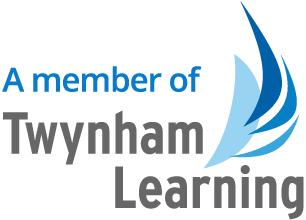Mental Health and Wellbeing
At The Grange School we want our students to be as healthy as possible so that they can learn at their very best. We all understand what it means to be physically healthy – eating well, being physically active and looking after our physical health difficulties quickly and as effectively as possible.
But we are not all so familiar with what it means to be mentally healthy. Being mentally healthy is very important for effective learning. Having difficulties with being mentally healthy can cause huge problems with every-day life, not just with learning.
The Grange School wants to support students with their mental health as much as we can. As a school we have worked with Dorset Mind and their ‘Dorset Mind Your Head’ programme to consider what more we can do to educate, and to extend the support that we are currently able to offer to our students. As part of the work we have undertaken we have developed the following:
- All students study a curriculum within PSHE lessons that look at the importance of Mental Health and Wellbeing.
- Regular assemblies that raise awareness of mental health and wellbeing
- Group sessions in Building Positive Relationships, Anger management, Exam Stress, Self Esteem
- Trained ELSA that offers 1-1 sessions with a referral process from the Heads of Year
We also believe in the importance of building resilience in our students and through our school culture and ethos we have also ensured that we have considered the 7 C’s of resilience.
Young people live up or down to expectations we set for them. They need adults who believe in them unconditionally and hold them to the high expectations of being compassionate, generous, and creative.
Competence: When we notice what young people are doing right and give them opportunities to develop important skills, they feel competent. We undermine competence when we don’t
allow young people to recover themselves after a fall.
Confidence: Young people need confidence to be able to navigate the world, think outside the box, and recover from challenges.
Connection: Connections with other people, schools, and communities offer young people the security that allows them to stand on their own and develop creative solutions.
Character: Young people need a clear sense of right and wrong and a commitment to integrity.
Contribution: Young people who contribute to the wellbeing of others will receive gratitude rather than condemnation. They will learn that contributing feels good, and may therefore more easily turn to others, and do so without shame.
Coping: Young people who possess a variety of healthy coping strategies will be less likely to turn to dangerous quick fixes when stressed.
Control: Young people who understand privileges and respect are earned through demonstrated responsibility will learn to make wise choices and feel a sense of control.
Bereavement
If you would like support with a bereavement please find below some useful website links with further information:
grieftalk helpline - Grief Encounter
Bereavement support for children and families | Winston's Wish (winstonswish.org)
Bereavement and young people - NHS (www.nhs.uk)
Dealing with grief and loss | Mental health advice | YoungMinds
Understanding grieving teenagers | Child Bereavement UK
How to support a young person who is grieving | Sue Ryder
Get Support (mosaicfamilysupport.org)
Counselling
Please click on the link below for free or low cost counselling options for students
No cost low cost counselling and therapy options
Young Minds support for Mental Health Week
BCP Mental Health Support Team
Mental Health Support Teams in Schools (MHSTs)
Parenting a Teen
Please click the box below for advice and resources for parenting a teen.
Young Persons' Support
Please click the box below for further information on Young Persons' Support in Dorset and National Support
The links below may be of help to both students and parents:
https://youngminds.org.uk/find-help/get-urgent-help/#are-you-a-young-person-in-crisis?
Mental Health Support Charity - Dorset Mind
https://www.themix.org.uk/get-support
https://sexualhealthdorset.org/
Coping with Self-Harm - A Parent's Guide
Local Organisations
 The organisations that we have chosen to recommend to you below are self-referral; you can go along whenever suits you and talk to someone who can help.
The organisations that we have chosen to recommend to you below are self-referral; you can go along whenever suits you and talk to someone who can help.
Christchurch Community Partnership
Community Drop-In Spaces • Access Wellbeing Dorset
Chat Health
ChatHealth is a confidential text messaging service that enables children and young people (aged 11-19) to contact their local public health nursing (school nursing) team. Please click here for more information.
There is also Crisis Textline, which is open 24/7 - please click here for more information.
Courses Available for Parents


